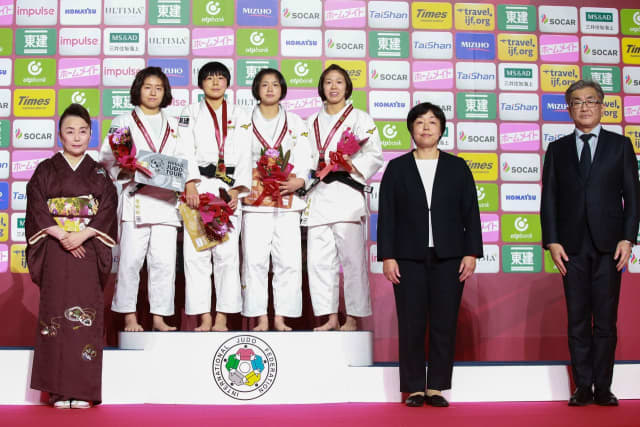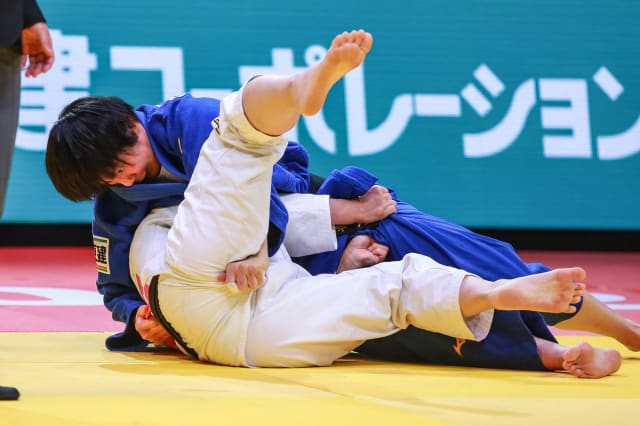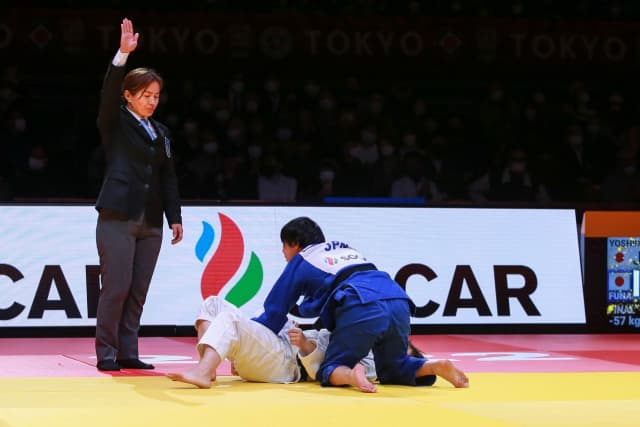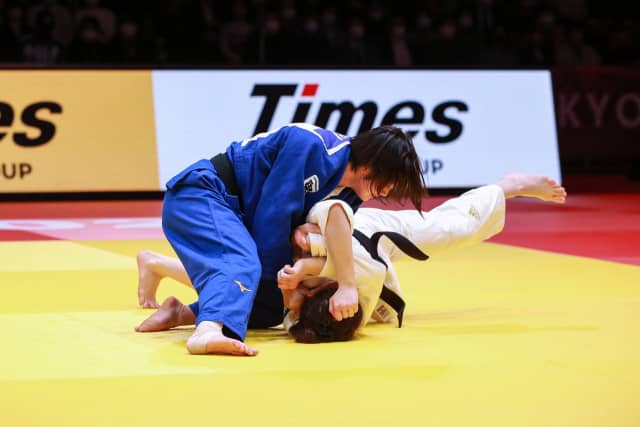However, we can never repeat it enough that competing in Japan is particularly difficult because, at every turn, there can be a Japanese athlete hiding, one that we did not expect. For Liparteliani it was Tsukasa Yoshida. Let's face it, the latter is far from being an unknown, since she won the World Judo Masters in 2021 and 2018, and was world champion in 2018; what a prize list! For the Georgian champion, the mountain was too big to climb. She couldn't resist Yoshida's precise and unstoppable ground work and was pinned for ippon.
Further down the draw, we obviously expected a lot from the most local Canadian, since she lives in Japan. Christa Deguchi, winner in Baku a few weeks ago and world champion in 2019, here in Tokyo, never seemed to be on the pace and she left the tournament by the back door, losing in golden score against Akari Amori (JPN). There is still work to be done for Deguchi to be back at her best level, the one she had before the Tokyo Olympics, which saw Jessica Klimkait being preferred to represent Canada.
Having observed the successes of some and the disappointments of others, the semi-finals came down to determining who would have supremacy among the Japanese athletes, as the four Japanese judoka competed for a place in the final. In this little game, it was Yoshida and Funakubo who qualified for the final.
It was with a right-left opposition that the final began and it was during the first sequence on the ground that Haruka Funakubo quickly took over and pinned her opponent for an ippon synonymous with victory. Second at the last World Championships in Tashkent and now holder of four grand slam gold medals, Haruka Funakubo scored a lot of points for the Olympic qualification.
The first two bronze medals of the day went to Momo Tamaoki (JPN) and Akari Omori (JPN) who defeated their respective opponents by ippon.





